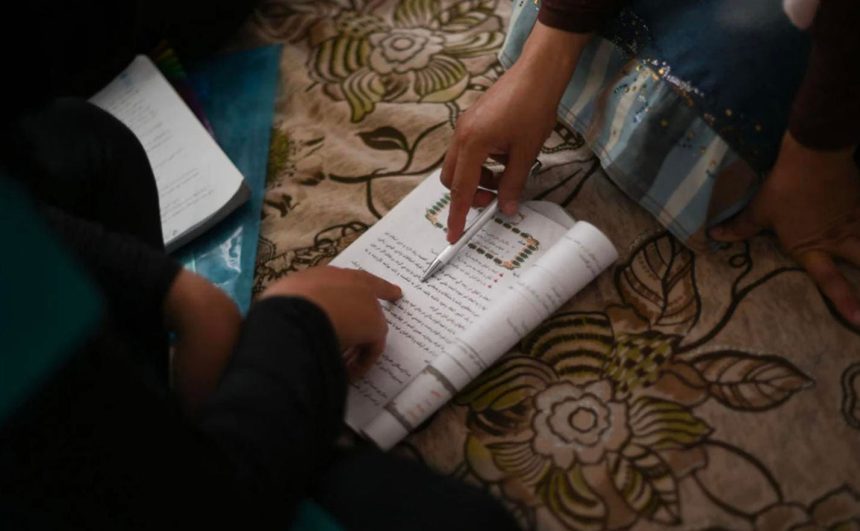As the shopping frenzy of Black Friday approaches, numerous brands are challenging the conventional mindset of consumption by adopting alternative approaches that emphasize sustainability, repair, and social responsibility. Rather than focusing on steep discounts, these companies are leveraging the opportunity to advocate for meaningful change, encouraging customers to rethink their shopping habits and engage in more responsible consumption. This shift signifies a growing awareness among brands and consumers alike about the environmental and social implications of unchecked consumerism.
A prime example of this movement is The Citizenry, a sustainable home decor brand that is committed to improving the lives of girls in Afghanistan. On Black Friday, The Citizenry announced that 100% of their profits would go toward funding education for 2,500 girls through their collaboration with Ideas Beyond Borders. This initiative represents their largest funding project to date and aims to provide safe, gender-inclusive education for girls who are otherwise barred from secondary schooling. By spending $120 on their products, customers contribute directly to the education of one girl for a year, illustrating the powerful impact consumer choices can have on global issues.
Similarly, The Or Foundation has joined forces with Vestiaire Collective to tackle the fashion industry’s growing waste crisis by offering upcycled clothing and accessories. The initiative showcases the work of twelve Ghanaian designers who create one-of-a-kind pieces from materials sourced in Accra’s Kantamanto Market. This market is known for its massive volume of secondhand clothing, yet it grapples with overwhelming waste due to overproduction. The collaboration seeks to transform that waste into valuable fashion items while raising awareness about the environmental impacts of fast fashion. By emphasizing the reuse and repurposing of existing resources, this partnership shifts the focus from creating new garments to finding innovative solutions for what already exists.
Swedish brand Asket has taken a bold stand by turning off their online store for new orders on Black Friday, instead inviting customers to bring in their used garments for repairs. Partnering with repair facility Fabrikörerna, Asket champions the philosophy of celebrating garments rather than consumption—a mantra that encourages mindful ownership and sustainability. Customers can only purchase “spare parts” this weekend, emphasizing the importance of extending the life of their existing items instead of contributing to the cycle of overconsumption. By prioritizing repair over purchasing, Asket exemplifies how brands can redefine the shopping experience and inspire consumers to value the clothes they already own.
In the footwear sector, Vivobarefoot is pioneering a movement focused on sustainable practices through their ReVivo platform, which facilitates the repair, recycling, and resale of shoes. This year, they have expanded their initiative to allow customers to recycle any brand of shoes, not just their products. With a strong emphasis on keeping shoes in circulation for as long as possible, Vivobarefoot aims to combat the environmental impact of footwear waste. Their two-pronged approach allows for both repairs of existing footwear and the resale of repaired or recycled shoes, reinforcing their commitment to sustainability while offering financial incentives for customers to participate.
Brands like Veja and Lucy and Yak are also leading the charge in promoting social causes alongside sustainable practices. Veja, which has opted out of Black Friday since 2017, is not only providing free repair services at their Paris headquarters but also promoting a culture of reuse. Lucy and Yak’s annual collaboration with the Fior Di Loto Foundation aims to support girls’ education in India through their Black Friday sales, with a unique design twist that showcases the creativity of the girls they’re supporting. This combination of charitable giving with sustainable practices reflects a broader trend in the industry that seeks to integrate social responsibility with retail practices.
In an age where the environmental impact of consumer choices is becoming increasingly clear, brands that align their values with social causes and sustainable practices are gaining traction. Abel, a fragrance brand known for its minimalist approach, has decided to forgo the traditional sales model in favor of encouraging intentional consumption. Their new scent, inspired by Paris, reflects a commitment to using plant-based ingredients and bioplastic packaging. Mini Rodini, a Swedish children’s clothing brand, is similarly dedicated to social impact, pledging to donate a significant portion of its sales during “Black Week” to Doctors Without Borders. Finally, Kindred Black’s Green Friday initiative demonstrates how mindful beauty brands are also getting involved, donating proceeds to environmental advocacy. Together, these brands illustrate a growing movement toward making Black Friday a vehicle for positive change rather than excessive consumption, showcasing the potential for retail to contribute to a more sustainable and equitable world.



